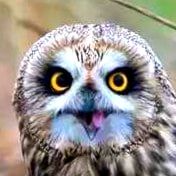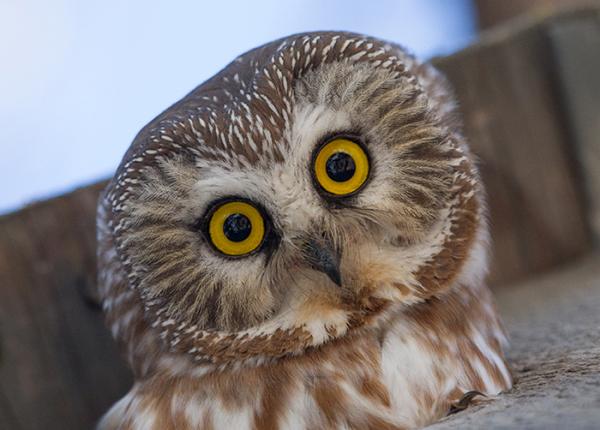WINNER: SAW WHET OWL 56-27
Saw Whet Owls are one of the smallest of the North American owls. Their names comes from their vocalization, which is says to sound like sharpening a saw blade. They come mainly from deep coniferous forests, far away from people. We usually only encounter them during their annual migration, when they are banded and studied. This is a very adorable little owl, and it comes in many colors and patterns.
The Ural Owl is quite the opposite to the Saw Whet. This large owl comes from northern Europe and Russia. Unlike the large excited eyes of the Saw Whet, the Ural Owl usually looks half asleep. While Ural Owls also typically don’t live near people, they do not appear as shy as the Saw Whet, and are fairly easy to approach.
Which is these birds is your favorite today? This is quite the diverse pairing, so upvote your choice below!


Are there hypothesis about the evolutionary pressures in the divergence of Iris colors between owl species? Does it have to do with social or mating displays, or is it more about the climate and nocturnal vs diurnal vs crepuscular hunting patterns?
Owl have very interesting eyes for many reasons.
It seems to be the part of the day they’re active, as you suspected. Here’s a primer I’ve posted before that gives the run down. I don’t think it’s 100% reliable, as Great Horned Owls have yellow eyes but aren’t known as diurnal owls.
Some species do seem to have greater eye color variation than others and some seem more reflective, giving that red eye camera effect in photos.
They can also control their irises voluntarily, as seen in this post.